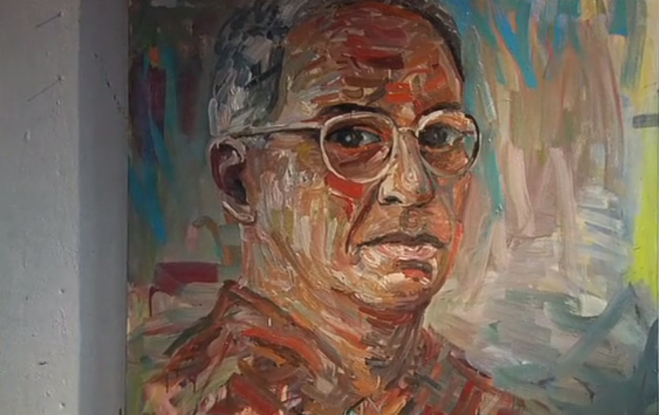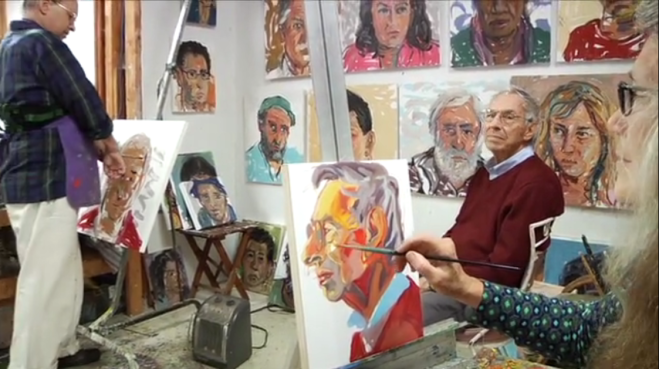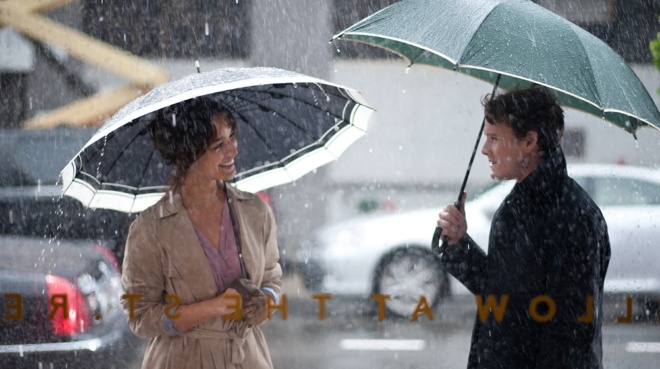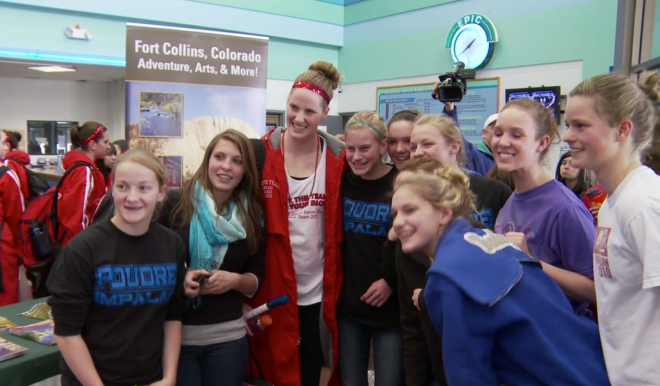Along the Highway 85 corridor in Adams and Weld counties, folks have some sense of what happened in Williston, N.D., when the oil boom took hold. Stop by any hotel in the area on any given day, the vacancies are harder to come by. Or travel the highway for any amount of time, alongside the growing number of trucks devoted to oil-and-gas industry activity — fluids, heating, drilling and beyond.
Being part of the boom is an amazing cultural phenomenon, and just as it is in Colorado as part of the Denver Basin boom, fracking was the key to the Bakken shale boom of Williston.
But more often than not, the common traits of boomtowns easily hide what’s happening under the surface. That was the case of pastor Jay Reinke, the focus of director Jesse Moss’ landmark documentary, “The Overnighters.”
“It’s easy to become a façade … and the result is always pain,” Reinke intones in the film’s opening minutes. That façade includes the vision of prosperity associated with becoming an economic powerhouse when O&G comes to town. The new business and tax revenues also mean new faces — dozens and then hundreds of people who have made the pilgrimage to Williston on the promise of jobs that, by and large, have largely been filled by the time they arrive.
Reinke knows the reality is uglier than the vision the migrant workers were sold on, as he opens his church to the many of them who have nowhere to stay. When the church floors are filled, he opens the parking lot for those who wish to sleep in their cars. After that, he welcomes some into his own home.
But it’s not the mass of humanity that has come to town with nowhere to turn that makes the situation ugly — it’s the reaction from Reinke’s neighbors and city officials, who have no answer for the overcrowding beyond questioning Reinke’s charity and handcuffing his efforts.
The drama that unfolds between Reinke, his current parishioners and the town as a whole raises questions of what truly is the Christian thing to do — especially when questions arise in the local newspaper as to whether the pastor is harboring sex offenders.
The tensions throughout also provide a foreshadowing for a personal drama developing between Reinke and his family. We get a sense of what is building up as Reinke consoles one of the many men he’s welcomed into his church: “I’m broken,” he admits, “We’re broken.” The pastor’s private struggle is one that threatens to leave him as lost and looking for answers as the hundreds he’s managed to shelter and care for amid Williston’s boom and subsequent housing crises.
Moss took it upon himself to stay in Reinke’s church for months on end, learning the stories of those who became part of the “overnighters” program there and the daily battle Reinke faced in trying to warm the people of Williston to the work he was doing. It’s an incredibly up close and sometimes painfully personal look at how this one community behaves when tested by the unthinkable influx of souls in search of the American dream out on the well pad — and it’s a sobering reminder of tremendous costs involved when one man sacrifices as much as he can for what he sees as the only right thing to do.
“The Overnighters” is unfathomably poignant not just for Front Range communities such as ours that are currently enjoying the swell of economic growth from O&G activity, but for an entire country that sees a horizon of better days ahead but all too many reminders of the Great Recession still around us — and the human lives that feel it all, through both bad and good.
“The Overnighters” — one of 15 films selected for the Academy’s shortlist of Best Documentary Features for 2014 — opens Dec. 5 for a weeklong run at the Alamo Drafthouse in Littleton, followed by a run at the Sie FilmCenter in Denver starting Dec. 19. Running time: One hour, 30 minutes. Four and a half stars out of five.







